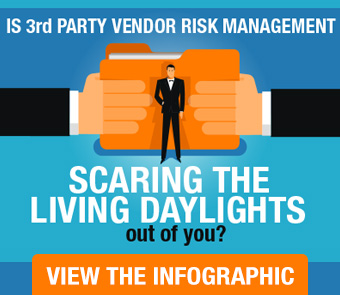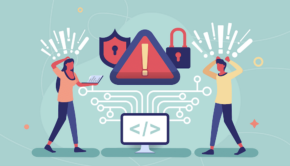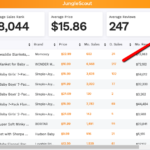How to Mitigate Third Party Vendor Risks
These days it is common practice for businesses to outsource in-house operations to Third-Party Vendors. Of course, the main motive is that they are cheaper not to mention that it helps companies focus more on essential business functions. However, did you know that relying on third party vendors could pose a threat to the data security of your company? Think of it this way, some vendors will claim to be the best and convince the customers of secure access to business systems-a feat that at times is not the case. A competent vendor should help a business in cost control, mitigate risks and help the business excel by providing that which have been asked for. Well, to help you avoid security risks that come with Third Party Vendors we have compiled a few best practices to get you protected.
Vendor selection
Research on the available vendors for the service you are looking to accrue. In other words, start by making a list of the best vendors in that sector by digging around. Once you find a suitable choice, it is time to know as much as you can about their internal security. Also, examine their history like how long the company has been in the market to get an overview of its stability. Make a point to know how often the vendor’s finance and security is audited and if they have had any issues with the law.
Look into their success stories with other clients and ask how successful the business has been since it started. You also need to check the providers’ relationship with their clients. It is also important to know how well the vendor understands your business or business domain plus its network and objectives. Finally yet importantly, it is advisable to know the physical location of the vendor in question.
Involve contracts
Once you have researched and decided on a vendor, use contracts to complete your agreements. Contracts are best for committing yourself keeping in mind that should anything ever go wrong you can always refer back to it. Desist from using word of mouth for agreements, as it does not document physical proof of any agreement. As a rule of the thumb, you can involve a lawyer who will make the agreement legally binding to both parties. The contract should not be complex just transparent, flexible and concise. It should indicate who the provider is, how long the contract will last, what is being provided and the security measures to be involved not forgetting who should take responsibility in certain situations.
The flexibility of the contract is also important in the event that you need to change your provider. Also, discuss and state the insurance policy that the vendor may offer in case of an accident or incident. Given that market stability is not a guarantee, ask about the fluctuation of the market dynamics and state how the business will be handled in such a situation.
Vendor’s performance
For starters, check if the vendor is meeting the terms of Service Level Agreements (SLA). A Service Level Agreement is an agreement between a client and service provider for recurring services. The main aim of this agreement is to make sure the service provider does not supply anything less than what is agreed. Is the vendor delivering products on time? Are they also delivering quality products that meet the expected standards?
In-house Monitoring
Security starts with you and so ensure to note issues as early as possible. You can do this by monitoring data and financial security often. When it comes to finances, you should be keen on what money is going in and out of your company. Do this by looking into accounts payable on a regular basis. For data security, look at access privileges that are given. Monitor the employee’ activities; what they are accessing, why they are accessing it and if privileges are granted to them to access the data. The vendors’ access should also be audited to see what they are accessing, how often they access and what they do when they access system.
Non-Disclosure Agreements (NDA)
This is an agreement that sets out the silence on negotiations or confidential agreements. This agreement guarantees that the vendor will help protect the company data. Once critical data is accessed, confidentiality and security are to be ensured to protect it from the hands of competitors, the public or any third party.
Security measures and encryption
What measures have been put to detect intrusion? How quickly can the vendor react to an attack or an alert? You should ask the provider for the control measures that have been put to protect and maintain sensitive data and systems. You need to protect your data and money in every possible way. Each company is prone to theft no matter what services they offer. For this reason, encryption of data is crucial to ensure data security in the realm of the company and employees as well. Hackers have become smart to hack into whatever security systems that have loopholes. Remember, the security policies used for internal company affairs should also be applied to the vendors.
Conclusion
Security breaches have now become a common fixture in many parts of the world meaning that data may no longer secure. The numbers of third-party vendors who handle client data with poor data security implementations are not so updated in terms of patching security loopholes in businesses. Therefore, it is up to you to carefully do your research and settle for the best. There is no better way to do this than to use a well-crafted 3rd party risk management solution.















